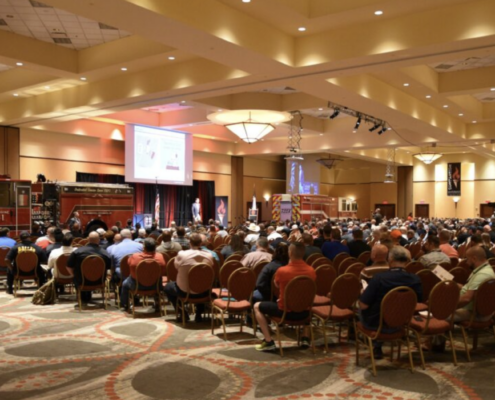 https://www.afterburner.com/wp-content/uploads/2024/09/leadership-symposium-afterburner.png
1050
1832
Nate Riggins
/wp-content/uploads/2024/07/Afterburner-Logo-Resize-Fullcolor-300x93.png
Nate Riggins2024-01-26 15:53:082024-12-29 14:58:46Decoding the 3 Crucial Leadership Situations
https://www.afterburner.com/wp-content/uploads/2024/09/leadership-symposium-afterburner.png
1050
1832
Nate Riggins
/wp-content/uploads/2024/07/Afterburner-Logo-Resize-Fullcolor-300x93.png
Nate Riggins2024-01-26 15:53:082024-12-29 14:58:46Decoding the 3 Crucial Leadership Situations
I like to think I’m a non-conformist. I’m also a behavioral psychology junkie, and a big believer in Flawless Execution. So, I picked up Originals, a New York Times Best-Seller, to see if I matched up. Sadly, I must report that I don’t quite make the cut as a true ‘original’, at least according to the author, Adam Grant. There is one non-conformist quality the author touts that I don’t have in common with true non-conformists . . . but more on that later.
In spite of my disappointment, I thoroughly enjoyed every page of Originals. Grant’s work is an attempt to outline the behaviors and actions that anyone can take to be more original, innovative, and creative. He’s a top-rated professor of psychology at Wharton whose work is cited in many of the popular works of behavior and motivation that populate current best-seller lists. What you will find in this book is well-researched and compelling. You will also be entertained. You will encounter some new vocabulary like kleptomnesia and vuja de. You’ll curse him for a story he tells about The Sarick Effect. You’ll learn some surprising things about frenemies; how your birth order affects originality; how to raise your kids; and the positive power of negative thinking (one of my favorites). Originals is brilliant.
Originals is also a compelling read that underscores many of the principles in Flawless Execution®. First is the need for experimentation and iteration to be innovative. The Flawless Execution planning process exists, first and foremost, as a learning process in complex environments. True originals, according to Grant, don’t get it right every time. They play the odds. Originals are prolific. They make a multitude of attempts to improve their chances of discovering something that works. They iterate, learn from failure, and keep trying. Ultimately, they create success.
Contrary to the popular vision of a great entrepreneur, originals also aren’t risk takers. Grant characterizes many successful entrepreneurs as cautious, even working a ‘day job’ while building their new business rather than giving up everything to chase a dream. Originals don’t throw caution to the wind. Originals assess risk carefully. That’s a core principle of the Flawless Execution planning process. Threat, resource, and lesson learned analysis culminates in a rational ‘go/no go’ decision. Couple that with iterative experimentation through multiple mission execution and you’ve got a recipe for success.
In a fascinating re-thinking of the causes of Groupthink, Grant challenges the notion that decisions often arise from a desire to conform to close social bonds. He re-examines the infamous Bay of Pigs disaster that originally brought attention to the Groupthink effect. It turns out that the Kennedy administration decision makers did explore a variety of different ideas. It wasn’t a lack of ideas or the need to reach consensus, but overconfidence and hubris that ultimately drove a bad decision. Groupthink arises when teams lack the humbling influence of a red team, a powerful Flawless Execution technique, to challenge underlying assumptions. The Bay of Pigs decision makers simply couldn’t accept that they were capable of making a bad decision. Red teaming is an act of humility that forces the admission that anyone may err.
Originals Shows the Power of Debriefing
The spirit and tone of debriefing finds its place in Originals, too. In a wonderful discussion of the culture at Bridgewater, a legendary, top performing investment firm, Grant demonstrates the power of radical candor. At Bridgewater, acceptance and admission of error, even for the CEO, is expected as a central part of the culture. Furthermore, diversity of thought isn’t just accepted, it’s is aggressively sought. Cognitive diversity is ‘unearthed,’ Grant writes. Originals can’t allow themselves to be fooled. Ideas and decisions must be aggressively tested from a multitude of perspectives. It’s tough to build an organizational culture that supports this form of radical condor without the leadership tone of the Stealth Debrief℠.
Of course, a discussion of originality wouldn’t be complete without an exploration of the powerful positive influence of procrastination. Wait, what was that last one again? Ah yes, I promised to come back to that one, didn’t I? Grant argues that originals procrastinate. What!? How can that be? I certainly don’t do that . . . well not often, anyway.
Originals has received some impressive endorsements – Sir Richard Branson, J.J. Abrams, and a foreword by Sheryl Sandberg. With such world-class talent, I’m surprised Grant was able to pass one ill-conceived idea past reviewers and editors. The problem isn’t the idea behind what he calls procrastination, it’s the use of the word ‘procrastinate’. He doesn’t really mean it. Grant is force-fitting ‘procrastination’ into a verbal procrustean bed to surprise the reader. I propose that the word Grant should have used is ‘ruminate.’ It isn’t that original thinkers put off thinking, that they leave creative tasks unfinished, as he contends. The mind doesn’t often create genius ideas overnight. Flashes of insight may occur, but that’s usually because the mind has been thinking about an idea, testing it backward and forwards, both consciously and unconsciously, for a long period of time . . . ruminating. Resting the thoughtful mind allows the subconscious to process ideas while we are otherwise engaged or even asleep. It’s not procrastination, it’s mental processing, and it takes time.
So, with the one small exception of the misuse of a word, Originals is a must-read. Grant covers many interesting and useful aspects of originality. Every reader will find something useful. Leaders, especially, will learn that originality is not just something some people have as a character trait, but something that can be developed and nurtured in any organization. Originals can help sharpen your team’s competitive edge.
Share This Post
More Like This
 https://www.afterburner.com/wp-content/uploads/2024/09/leadership-symposium-afterburner.png
1050
1832
Nate Riggins
/wp-content/uploads/2024/07/Afterburner-Logo-Resize-Fullcolor-300x93.png
Nate Riggins2024-01-26 15:53:082024-12-29 14:58:46Decoding the 3 Crucial Leadership Situations
https://www.afterburner.com/wp-content/uploads/2024/09/leadership-symposium-afterburner.png
1050
1832
Nate Riggins
/wp-content/uploads/2024/07/Afterburner-Logo-Resize-Fullcolor-300x93.png
Nate Riggins2024-01-26 15:53:082024-12-29 14:58:46Decoding the 3 Crucial Leadership Situations https://www.afterburner.com/wp-content/uploads/2024/09/thethreebiggest-1.jpeg
931
1400
Nate Riggins
/wp-content/uploads/2024/07/Afterburner-Logo-Resize-Fullcolor-300x93.png
Nate Riggins2024-01-03 15:04:522024-12-29 14:58:46The Three Biggest Obstacles to Building Trust as a Leader Today
https://www.afterburner.com/wp-content/uploads/2024/09/thethreebiggest-1.jpeg
931
1400
Nate Riggins
/wp-content/uploads/2024/07/Afterburner-Logo-Resize-Fullcolor-300x93.png
Nate Riggins2024-01-03 15:04:522024-12-29 14:58:46The Three Biggest Obstacles to Building Trust as a Leader Today https://www.afterburner.com/wp-content/uploads/2024/09/creating-a-strategy-1.jpeg
664
1000
Nate Riggins
/wp-content/uploads/2024/07/Afterburner-Logo-Resize-Fullcolor-300x93.png
Nate Riggins2024-01-03 08:00:192024-12-29 14:58:464 Questions You Have to Ask When Creating a Strategy
https://www.afterburner.com/wp-content/uploads/2024/09/creating-a-strategy-1.jpeg
664
1000
Nate Riggins
/wp-content/uploads/2024/07/Afterburner-Logo-Resize-Fullcolor-300x93.png
Nate Riggins2024-01-03 08:00:192024-12-29 14:58:464 Questions You Have to Ask When Creating a Strategy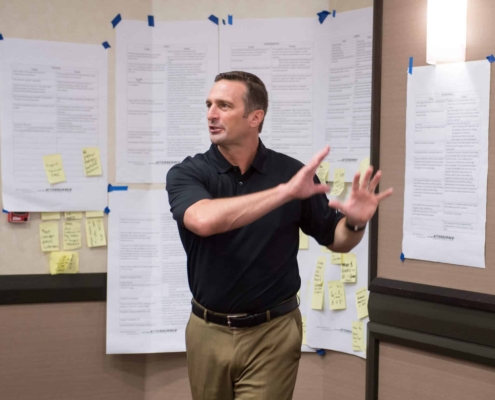 https://www.afterburner.com/wp-content/uploads/2024/09/CVMV_0008.jpg
1547
2100
Nate Riggins
/wp-content/uploads/2024/07/Afterburner-Logo-Resize-Fullcolor-300x93.png
Nate Riggins2022-11-10 15:37:382024-12-29 14:58:545 Leadership Skills to Get Your Revenue Engine Roaring in Q4
https://www.afterburner.com/wp-content/uploads/2024/09/CVMV_0008.jpg
1547
2100
Nate Riggins
/wp-content/uploads/2024/07/Afterburner-Logo-Resize-Fullcolor-300x93.png
Nate Riggins2022-11-10 15:37:382024-12-29 14:58:545 Leadership Skills to Get Your Revenue Engine Roaring in Q4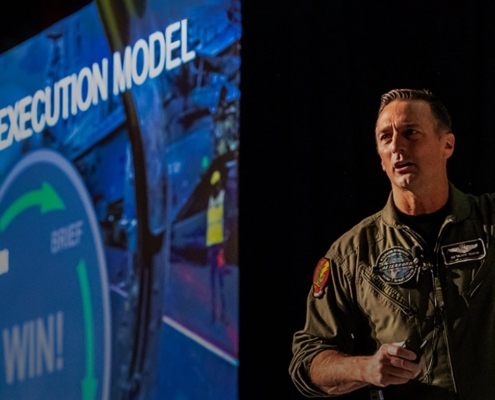
A Word from Murph: Right Now, Leadership in Business Means Going Back to Basics
Inspiration, Leadership, Leadership Development https://www.afterburner.com/wp-content/uploads/2024/09/AdobeStock_198086711-1.jpeg
1265
2048
Nate Riggins
/wp-content/uploads/2024/07/Afterburner-Logo-Resize-Fullcolor-300x93.png
Nate Riggins2020-03-30 09:00:352024-12-29 14:58:577 Leadership Tips to Motivate Your Remote Employees
https://www.afterburner.com/wp-content/uploads/2024/09/AdobeStock_198086711-1.jpeg
1265
2048
Nate Riggins
/wp-content/uploads/2024/07/Afterburner-Logo-Resize-Fullcolor-300x93.png
Nate Riggins2020-03-30 09:00:352024-12-29 14:58:577 Leadership Tips to Motivate Your Remote Employees https://www.afterburner.com/wp-content/uploads/2024/09/woman-showing-how-to-improve-your-situational-awareness-with-map-in-background-1.png
667
1000
Nate Riggins
/wp-content/uploads/2024/07/Afterburner-Logo-Resize-Fullcolor-300x93.png
Nate Riggins2020-03-22 07:00:122024-12-29 14:58:583 Ways to Improve Your Situational Awareness
https://www.afterburner.com/wp-content/uploads/2024/09/woman-showing-how-to-improve-your-situational-awareness-with-map-in-background-1.png
667
1000
Nate Riggins
/wp-content/uploads/2024/07/Afterburner-Logo-Resize-Fullcolor-300x93.png
Nate Riggins2020-03-22 07:00:122024-12-29 14:58:583 Ways to Improve Your Situational Awareness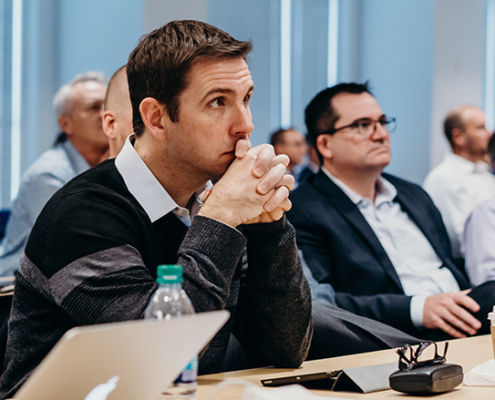 https://www.afterburner.com/wp-content/uploads/2024/09/team-sitting-in-a-meeting-listening-to-how-to-cope-with-task-saturation-1.png
439
1000
Nate Riggins
/wp-content/uploads/2024/07/Afterburner-Logo-Resize-Fullcolor-300x93.png
Nate Riggins2020-02-14 09:00:522024-12-29 14:58:58Identifying your Task Saturation Coping Mechanisms
https://www.afterburner.com/wp-content/uploads/2024/09/team-sitting-in-a-meeting-listening-to-how-to-cope-with-task-saturation-1.png
439
1000
Nate Riggins
/wp-content/uploads/2024/07/Afterburner-Logo-Resize-Fullcolor-300x93.png
Nate Riggins2020-02-14 09:00:522024-12-29 14:58:58Identifying your Task Saturation Coping Mechanisms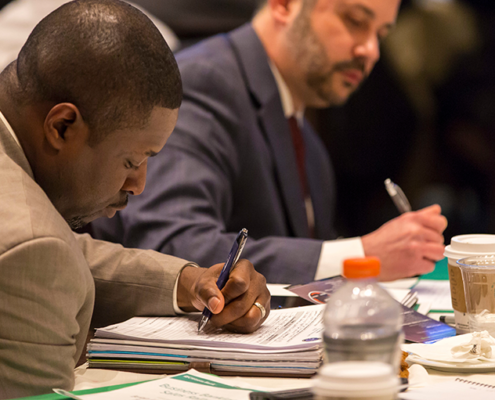 https://www.afterburner.com/wp-content/uploads/2024/09/Men-writing-in-notebooks-to-help-eliminate-task-saturation-1.png
511
1000
Nate Riggins
/wp-content/uploads/2024/07/Afterburner-Logo-Resize-Fullcolor-300x93.png
Nate Riggins2020-02-05 09:00:582024-12-29 14:58:583 Simple Ways to Eliminate Task Saturation
https://www.afterburner.com/wp-content/uploads/2024/09/Men-writing-in-notebooks-to-help-eliminate-task-saturation-1.png
511
1000
Nate Riggins
/wp-content/uploads/2024/07/Afterburner-Logo-Resize-Fullcolor-300x93.png
Nate Riggins2020-02-05 09:00:582024-12-29 14:58:583 Simple Ways to Eliminate Task SaturationAbout Us
Building Strong Teams Through the Guidance of Fighter Pilot Keynote Speakers.

